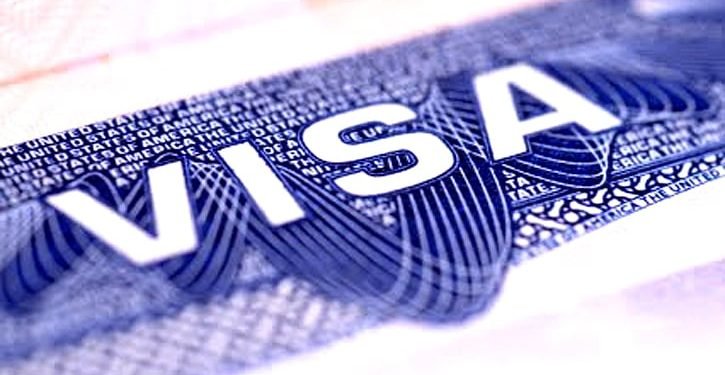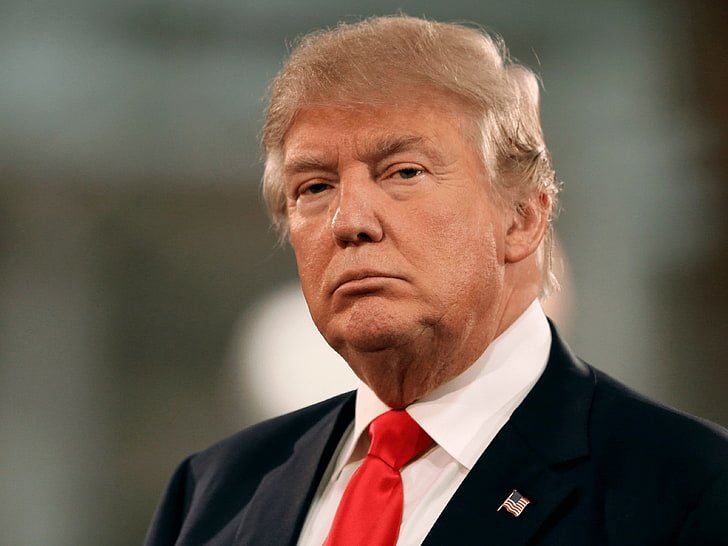U.S. Resumes Student and Exchange Visa Processing With New Public Social Media Rule in 2025
Washington D.C., June 2025 – After a brief suspension, the United States has officially resumed processing visas for international students and exchange visitors. However, this resumption comes with a significant new requirement that has sparked debate among students, educational institutions, immigration experts, and privacy advocates alike.
As of June 2025, all applicants for educational (F), vocational (M), and exchange visitor (J) visas are now required to make their social media profiles public as part of the visa screening process. The U.S. Department of State has issued new directives to all American embassies and consulates worldwide, mandating stricter background checks focused on applicants’ online presence.
Why Was the Visa Process Paused?
The brief pause in student and exchange visa processing began in April 2025, reportedly due to updates in the U.S. visa vetting system. Government officials cited the need to enhance national security, particularly in light of growing geopolitical tensions, cybersecurity threats, and foreign influence concerns.
While this temporary suspension caused concern among many aspiring students, especially those preparing for the Fall 2025 intake, the State Department now says that the new guidelines will improve both safety and transparency in the student visa process.
A New Era of Visa Scrutiny: Public Social Media Profiles Now Required
Under the revised visa policy, all foreign students applying for F (academic), M (vocational), or J (exchange) visas must ensure their social media accounts are set to public visibility throughout the visa application and interview process.
This includes platforms such as:
-
Facebook
-
Instagram
-
X (formerly Twitter)
-
TikTok
-
YouTube
-
LinkedIn
-
Reddit
-
Snapchat
-
And other platforms listed in the visa application forms
Applicants who fail to provide public access to their profiles may face delays, extended administrative processing, or even denials, as visa officers may interpret limited access or restricted visibility as a red flag.
What Will Officers Look For?
According to the State Department’s internal briefing shared with media outlets, consular officers will now conduct a review of the online behavior and content shared by the applicant. They will examine:
-
Political affiliations or radical content
-
Communication patterns
-
Comments or shares that may indicate extremist sympathies
-
Travel history shared online
-
Connections to suspicious individuals or groups
-
Identity inconsistencies or false claims
The new policy is designed to identify potential risks early in the visa process, especially among individuals coming for long-term study in sensitive fields such as artificial intelligence, cybersecurity, biotechnology, and defense-related engineering.
Equal Implementation Across All Countries
One major clarification from the U.S. State Department is that this rule will apply universally, regardless of an applicant’s country of origin.
While the U.S. has previously applied enhanced vetting to students from specific regions — particularly China, Iran, Russia, and some Middle Eastern nations — officials have emphasized that no group is being targeted with this update.
“This policy is not discriminatory. It is part of a broader effort to ensure full transparency and safeguard U.S. national interests in the face of rapidly evolving global threats,” said a senior State Department official.Past Trends: Tension With China and Other Nations
This new measure is also being seen in the context of past concerns. Over the last decade, the U.S. has been increasingly cautious about students, particularly from China, enrolling in advanced STEM programs. There have been accusations from U.S. intelligence agencies regarding technology theft and intellectual property breaches involving Chinese nationals.
Visa denials for Chinese STEM students increased notably between 2019 and 2022. While those restrictions were eased under certain administrations, current global dynamics have brought security concerns back into focus.
Now, with the introduction of social media screening for all applicants, the approach appears to be shifting from country-specific scrutiny to platform-based digital transparency.
Reactions From Universities and Colleges
The announcement has stirred considerable discussion within the U.S. academic community. American universities, which rely heavily on international students for diversity and financial stability, have expressed mixed reactions.
Many schools are concerned that this policy may discourage talented international students from applying to U.S. institutions, especially those who value digital privacy.
According to Dr. Sarah Mitchell, Director of Global Student Services at a top-ranked public university:
“We support national security efforts, but asking students to unlock their personal digital lives feels intrusive. Not every student is comfortable exposing years of personal history to strangers.”
Some institutions are considering setting up pre-arrival counseling services to help students audit and clean up their social media profiles before applying. Others worry about the vagueness of what is considered “suspicious content,” as social media can often be misinterpreted out of context.
Concerns From Privacy Advocates
Digital rights organizations, such as the Electronic Frontier Foundation (EFF) and Access Now, have raised serious concerns about the impact of the new guidelines on online privacy and freedom of expression.
“This policy essentially coerces individuals to sacrifice digital privacy in exchange for entry into the U.S.,” said EFF spokesperson Rachel Simon. “It sets a dangerous precedent, especially when no clear definition is given regarding what content may lead to visa denial.”
There is also concern that applicants could be penalized for satire, jokes, memes, or political commentary taken out of context — especially when translated or viewed through cultural biases.
Buy Any Toyota Car Before June 25 and Save Up to Rs. 10 La
Read This Artial
Student Voices: Worry and Confusion
Prospective students around the world are reacting with anxiety and uncertainty.
Ali Shah, a Pakistani student admitted to a U.S. university for Fall 2025, said:
“My Facebook is private because I don’t want strangers seeing my family pictures or religious views. Now I feel like I must choose between my personal safety and my future.”
Li Wen, a graduate applicant from China, shared:
“I’m not sure how to prove I’m not a threat based on my TikTok dances. I worry that even old jokes or school pranks might be misunderstood.”
Many students are now considering alternative destinations like Canada, the UK, Germany, or Australia, where visa processes, while still strict, are seen as more respectful of digital privacy.
Advice for Applicants: How to Prepare for the New Rule
Immigration experts are advising all prospective students and exchange visitors to review their online presence carefully before applying for U.S. visas.
Some key tips include:
-
Audit your profiles: Remove any content that might be politically sensitive, controversial, or misinterpreted.
-
Use real names: Ensure that your usernames and profile names match your passport or application information.
-
Delete unused accounts: Dormant or suspicious-looking accounts may raise questions.
-
Avoid sarcasm or jokes that may be misread: Especially regarding politics, violence, or extremist topics.
-
Make your accounts public but curated: Ensure the visible content reflects your academic, social, and professional life positively.
Could This Backfire?
Some analysts warn that the U.S. could unintentionally hurt its own academic ecosystem by creating barriers for highly skilled students. With competition rising from other countries for global talent, such policies may reduce America’s attractiveness as a study destination.
A report from the National Association for Foreign Student Advisers (NAFSA) indicated a potential drop of 12–18% in international applications in 2025 due to post-COVID travel issues, economic uncertainty, and growing scrutiny.
The new social media policy could further widen that gap.
The Bigger Picture: U.S. National Security vs. Global Openness
This policy is part of a broader effort by the U.S. to tighten immigration control while maintaining academic and research excellence. Over the last five years, Washington has implemented a series of measures, including:
-
Stricter checks for research scholars
-
Export control laws for sensitive research
-
Greater collaboration with the FBI and Department of Homeland Security in academic institutions
-
National security briefings for universities hosting international researchers
The addition of public social media scrutiny is being portrayed as a natural next step in adapting to a digitally driven world, where online behavior can be as revealing as official documents.
What Comes Next?
For now, the State Department has not indicated whether this policy will expand to other visa categories. However, insiders say similar digital transparency rules may be applied to work visas (H-1B) and business visitors (B1/B2) in the near future.
Some immigration attorneys suggest that the U.S. might eventually create an automated system that analyzes social media patterns using AI algorithms, though such technology raises its own ethical and technical questions.
Conclusion: A New Visa Landscape
The resumption of U.S. student and exchange visa processing is good news for many aspiring students around the world. However, the addition of the public social media requirement represents a profound shift in how the United States balances security, transparency, and privacy in the digital age.
While the government sees this as a necessary evolution in immigration policy, the global academic and civil society communities are watching closely to see how it impacts real students and their futures.
For now, one thing is clear: studying in the U.S. no longer requires just academic excellence — it also demands a well-managed digital footprint.




